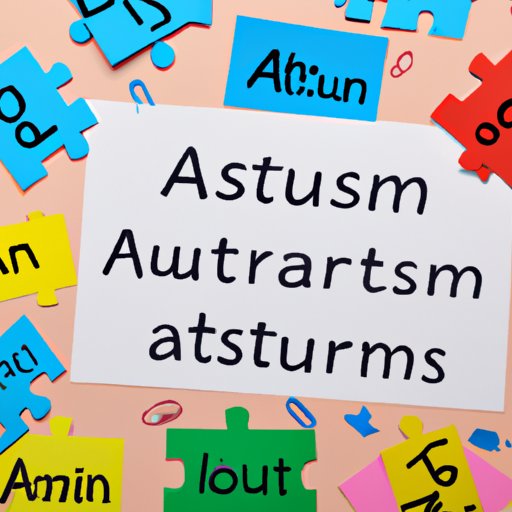
Is Autism a Mental Disability?
Autism, often referred to as Autism Spectrum Disorder (ASD), is a condition that affects the development of communication and social skills. It is a neurological condition that affects an individual’s ability to interact with others and succeed in social situations. Autism has been a controversial topic in the mental health field, with some people labeling it as a mental disability. In this article, we will explore whether or not autism is a mental disability.
Understanding Autism as a Neurological Condition: Why It’s Not a Mental Disability
Autism is a neurodevelopmental disorder that affects an individual’s behavior, social interaction, communication, and sensory processing. It is a condition that is caused by differences in the way the brain develops and works. Autism is not a mental illness, and it should not be classified as such. Mental illnesses, such as depression and anxiety, are conditions that affect an individual’s mental health, and they are treated accordingly. Autism, on the other hand, is a unique condition that requires specialized treatment and therapy to manage.
Individuals with autism have differences in their brain development that affect the way they process information. For instance, they may have difficulty with interpreting nonverbal cues like facial expressions and tone of voice. These differences in the brain cause them to struggle with social communication and nonverbal communication. Contrary to mental disabilities, autism is not a cognitive disability.
Breaking the Stigma: Challenging the Perception of Autism as a Mental Illness
Labeling autism as a mental illness can have negative effects on individuals with ASD. Firstly, it fosters a negative stigma surrounding autism. People with autism are already subjected to discrimination and marginalization in various aspects of their lives. Labeling autism as a mental illness only serves to further stigmatize and ostracize them. Secondly, it leads to a misunderstanding of how to appropriately treat and support individuals with autism. It’s important to view them as people with unique struggles, rather than people who are sick.
It is important to recognize autism as a unique condition and not a mental disability. Autism needs specific attention and a tailored approach to treatment to be successful. Recognizing autism as a unique condition helps in avoiding social misconceptions and providing a more specialized approach to parenting, education, and clinical treatments.
Recognizing Autism as a Developmental Disorder, Not a Mental Disability
Autism is a developmental disorder that affects speech, behavior, and communication. It is a condition that is usually diagnosed in early childhood and stays with the individual throughout their life. It is not a mental disability. Autism is instead a complex disorder that impacts many aspects of an individual’s development; social, communication, and behavioral development are the main skills that are affected.
There are crucial features of autism that distinguish it from mental disabilities. Autism isn’t a cognitive disability, so people with autism don’t have a limited intellectual capacity. In fact, most individuals with autism possess an average or above-average intelligence quotient (IQ). While various mental disabilities can use IQ as a factor and distinguish between mild, moderate, and severe disabilities, with autism, this is not the case as it is a neurological condition.
Addressing Common Misconceptions: Refuting the Link Between Autism and Mental Disability
It is not uncommon to hear people using autism and mental disability interchangeably; however, this is a common misconception. Autism is in no way a mental disability. The two are drastically different in their makeup and require distinct therapy protocols.
While individuals with autism might have behavioral traits that some would associate with mental disabilities, autism is not a cognitive condition. High-functioning people with autism often possess higher-than-average levels of intelligence and, therefore, will have no cognitive difficulties such as those associated with various mental disabilities. The difference between autism and mental disability is significant, and understanding this disparity is critical in providing appropriate support for those with autism.
Autism, Ableism, and the Importance of Accurate Terminology: Debunking the Myth of Autism as a Mental Disability
Using ableist terminologies and mental disability links when referring to autism has harmful effects on the disability community. The use of such stigmatizing language contributes to the marginalization and isolation of people with disabilities. As such, it is essential to use precise, accurate, and non-discriminatory language when referring to autism.
Autism is referred to as a neurodivergent condition rather than mentally disabled. This language recognizes autism as a part of the neurodiverse community, highlights the difference from mental disabilities, and acknowledges the fact that people who are neurodivergent think and perceive the world differently, which as such should not contribute to the formation of negative labels.
Conclusion
In conclusion, Autism is not a mental disability. It is a neurological disorder that affects the development of communication and social skills in individuals. Autism is a unique condition that requires specialized therapy and treatment plans. Labeling autism as a mental disability is not only inaccurate but harmful. The negative effects of labeling autism as a mental disability can lead to unfair treatment and perpetuate stereotypes surrounding the condition. Autism needs to be recognized as a developmental disorder and treated accordingly. Overall, it is vital to understand that autism is not a mental disability, and categorizing it as such only serves to hinder progress with effective treatment for the autistic individual.




